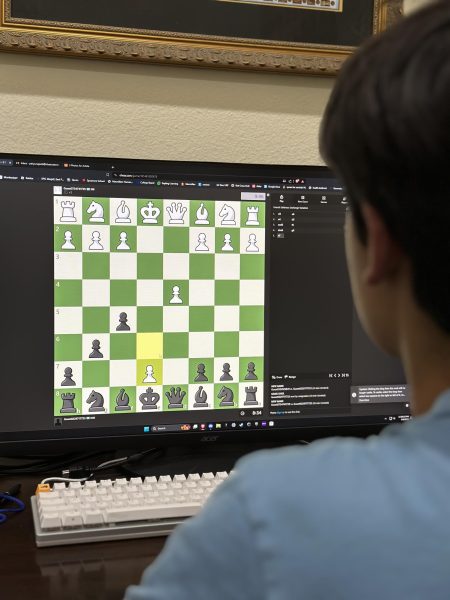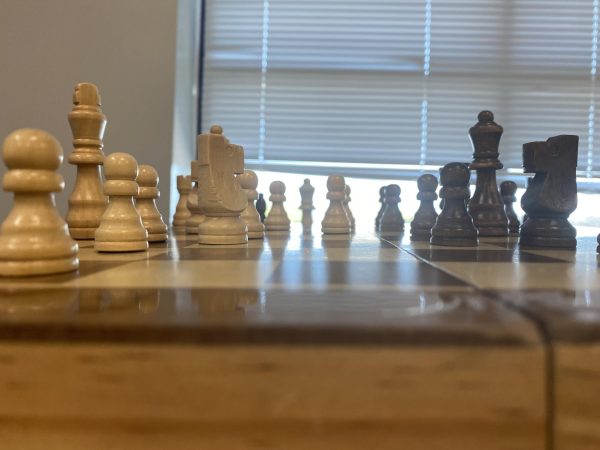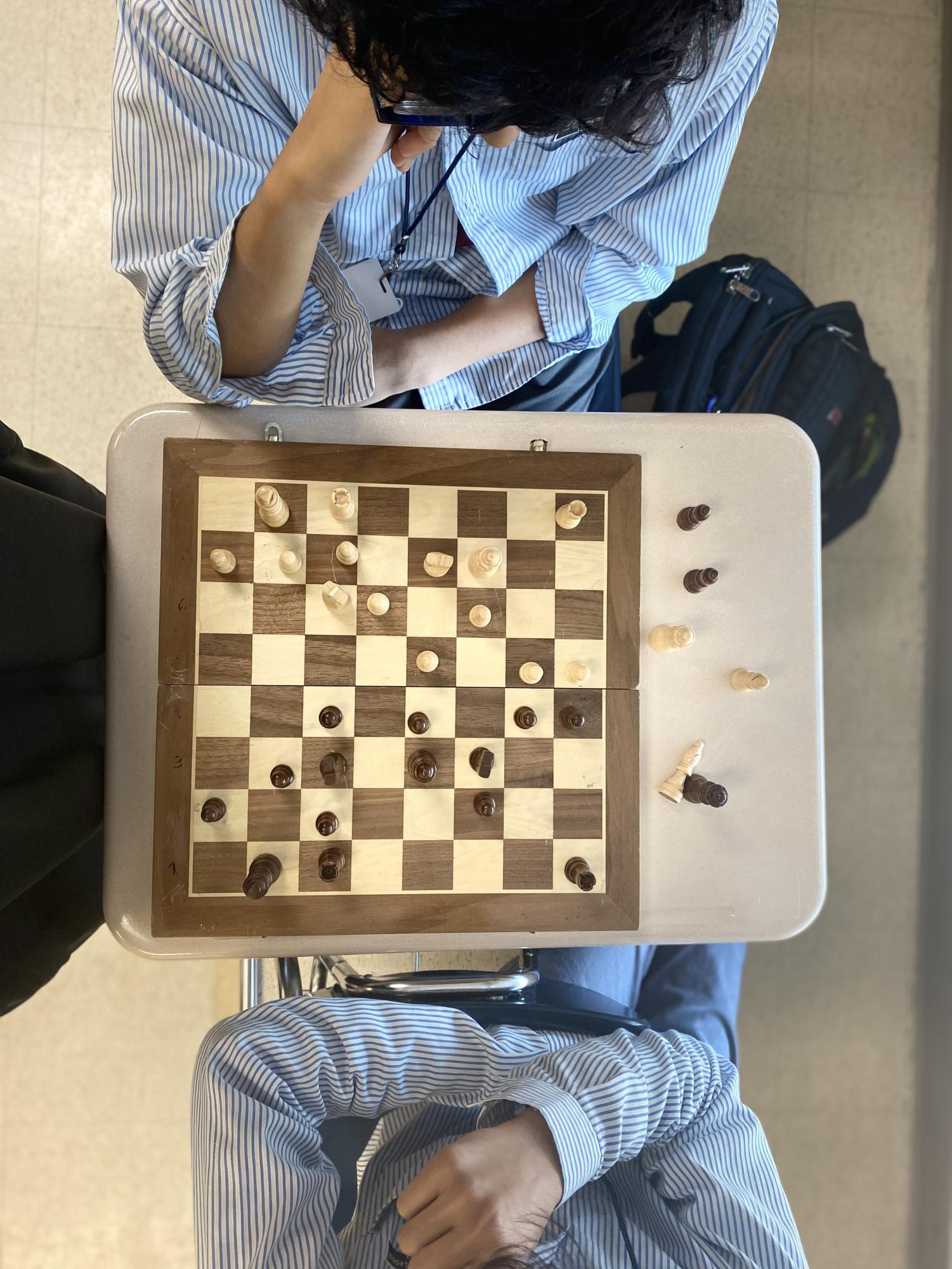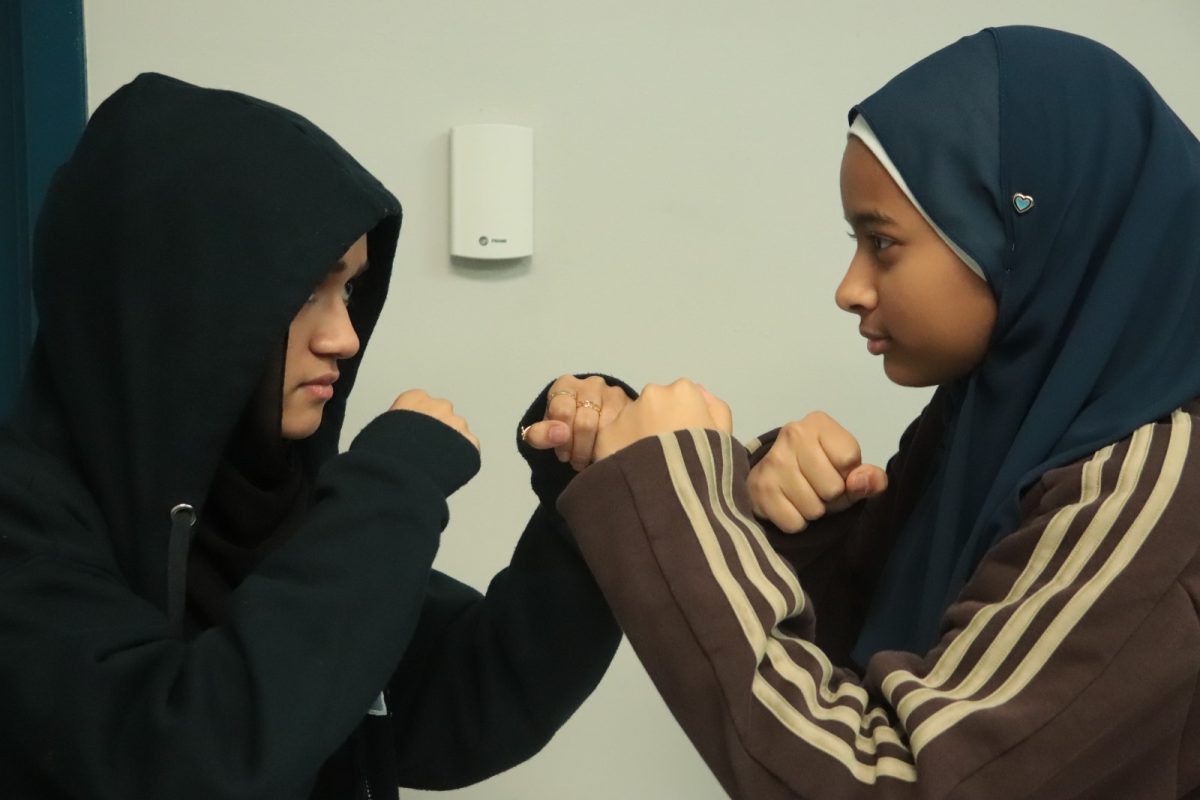Chess is a game that becomes a training ground for improving people’s attention spans. The memory skills required to learn the game of chess help children improve their ability to concentrate. As challenging as chess may seem, it can be broken down simply for young minds. Children love to learn through games. Chess pieces essentially move in patterns. Learning how the pieces move in relation to the board and the other pieces in the game can encourage children to concentrate.
“Playing chess helps me improve my decision-making and problem-solving as we use these in chess,” affirms Wahaj Uddin, a freshman and young chess enthusiast, emphasizing the benefits that transcend the game itself. Chess is also a game of disciplined focus. “Chess does help increase my attention span because if I was distracted during chess, I would lose so I have to train myself to pay attention,” says, freshman, Sulaiman Mohammed. It’s also a game of strategy and planning. It unexpectedly teaches young students valuable lessons in time management. Chess often requires quick decision-making, especially in time-limited formats like blitz or rapid games. This helps improve your ability to think critically and make effective decisions under pressure. “Time management normally is not a thing that chess helps unless you play under a timer. If you play under a timer, time management suddenly becomes your best friend”, says Mohammed. The pressure of the ticking clock in chess mirrors the real-world challenges of managing time effectively. “One example is having to play ahead; I have to look at all possible moves of any dangerous pieces to avoid being put into an unpleasant situation”, Mohammed explains. Engaging in chess can provide a welcome escape from the stresses of daily life.

The intense focus required during a game of chess diverts attention away from worries and anxieties, allowing players to experience a state of flow and relaxation.”Yes, playing chess allows me to take my mind off of my problems and have some fun,” affirms Uddin. Moreover, the game of chess can teach students many valuable lessons. “I remember that once in a chess competition, I was up in material and position, and my opponent only had a few seconds left on their clock. However, I made a very bad mistake, and my opponent managed to checkmate me with one second on their clock, winning the game. This taught me that even if you think you’re good at a subject, or already know what’s gonna be on the test, you can never be overconfident, and you still have to study and be cautious,” recalls Uddin. “Sometimes in chess, the games can last like 20 minutes or more, and sometimes your opponent is crushing you on material and time, but you have to be patient and wait for an opportunity to take the advantage,” notes Uddin, echoing the importance of resilience and strategic waiting in both the game and life. Playing chess can help improve memory and recall, as a chess player has to remember openings, strategies, past moves, and anticipate future moves. This mental exercise serves as a fantastic workout for the brain, enhancing both short-term and long-term memory.

“I don’t play chess very heavily, or memorize openings, but I do know that some professional chess players have gotten so good with memory that they can play an entire game blindfolded, keeping track of the entire game in their head,” shares Uddin. A deep dive into the intellectual landscapes shaped by the ancient game of chess reveals a journey where each move becomes a lesson and every match, a chapter in the narrative of student growth. Mohammed shares, “In the grand chessboard of life, every move is a note, and the game itself is a powerful tool that stimulates the strategic growth of young minds.”






